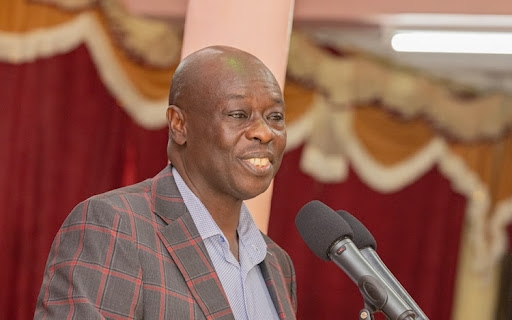As I have had occasion to mention before, at the dawn of Independence, our founding fathers had a pretty clear idea of what they hoped to deliver to the indigenous majority in the country.
The founding President Mzee Jomo Kenyatta spoke often of three evils that must be uprooted from this country: disease, ignorance and poverty.
The word ignorance, as used then, would actually be considered to be very “politically incorrect” now. Basically, if you were not educated, you were “ignorant”.
So what the government in the post-election period was offering was free (or affordable) public education; universal health care; and, to some degree, prosperity.
Of these, I would say that it’s only illiteracy (or “ignorance” as they would have said back then) that we have substantially vanquished. Universal healthcare is still simply an aspiration, even though some progress has been made. And it is in the search for prosperity that we have most spectacularly failed.
And yet it is only through the creation of such prosperity – or to put it more clearly, through economic growth – that we can hope to see universal free education and universal healthcare.
Consider the health sector: just a week or so ago, there were shocking reports of about 4,000 unemployed young Kenyan doctors desperately looking for work. And that is just doctors before you factor in other health workers who are likely to have even greater numbers of unemployed.
Absorbing all those doctors (and other trained medical professionals) into the public sector would undoubtedly take us a long way towards universal healthcare. But it is plain enough that this will not happen anytime soon.
Maybe it is a matter of misplaced priorities. Or maybe it is the government simply does not have enough money for this, given how much was stolen from Ministry of Health funds not that long ago, creating the fabled “Covid-billionaires”.
But even so, we cannot hope to have the kind of comprehensive universal healthcare that economically advanced nations have until we as a nation are rich enough to guarantee quality healthcare to even the poorest of our citizens.
And this is where the problem really comes in. Nobody seems to know how such prosperity can be achieved in any direct and formulaic manner.
I was reminded of this when I reread the economist William Easterly’s The Elusive Quest for Growth about the time when ever more wild promises of imminent prosperity were being made by the leading presidential candidates during the recent general election.
I wanted to remind myself of what highly qualified economists who have no interest in the outcome of presidential elections had to say about how a responsible government would go about “fighting poverty”.
One of this book’s introductory paragraphs is particularly illuminating:
“…Many times over the past 50 years, we economists thought we had found the right answer to economic growth. It started with foreign aid to fill the gap between “necessary” investment and saving… [later we] thought investment in machines was the key to growth…[then] this idea that education was a form of accumulating “human machinery” …we promoted population control…we promoted official loans to induce countries to do policy reforms…we offered debt forgiveness…”
And what were the results of all these varying efforts to make poor countries rich? Simply that “None of these elixirs has worked as promised.”
This book was published about 20 years ago, and it is undeniable that Kenya has made some progress since then when it comes to economic growth.
But we are still – broadly speaking – a nation of poor farmers, insofar as the majority of our people still live in rural areas and depend on near-subsistence farming for a living.
My point then is that irrespective of who ended up in State House after that last election, his political opponents were bound to have plenty of verbal ammunition to deploy against him.
Political campaigns are one thing. Creating any notable national prosperity is another. And no formula has yet been found – even from the academic research of the world’s most eminent economists – for how an entire nation can be swiftly moved from generally prevalent poverty to widespread prosperity.










